The Omicron variant of coronavirus carries a “very high” global risk of surges, the WHO warned on Monday, as more countries reported cases, prompting border closures and reviving worries about the economic recovery from a two-year pandemic.
Scientists have said it could take weeks to understand the severity of Omicron, which was first identified in southern Africa. Its emergence has caused a strong global reaction, with countries imposing travel curbs and other restrictions, worried that it could spread fast even in vaccinated populations.

Spooked investors wiped roughly $2 trillion off the value of global stocks on Friday but financial markets were calmer on Monday, even after Japan, the world’s third-largest economy, said it would close its borders to foreigners.
“The overall global risk related to the new variant of concern Omicron is assessed as very high,” the World Health Organization advised its 194 member nations, warning of “severe consequences” in some areas.
It said no deaths linked to Omicron variant had been reported so far.

A top South African infectious disease expert said Omicron appears to be more transmissible than previous variants, including to people with immunity from vaccination or prior infection. South African cases are likely to top 10,000 a day this week, rocketing up from 2,858 on Sunday and barely 300 a day two weeks ago, Professor Salim Abdool Karim said.
But he added that it was too early to say whether symptoms were more severe and said existing COVID-19 vaccines are probably effective at stopping Omicron from causing severe illness.

On Sunday, a South African doctor who was one of the first to suspect a new strain said Omicron appeared so far to be producing mild symptoms.
Portugal found 13 cases of the variant at a Lisbon football club. Scotland and Austria also reported their first Omicron cases on Monday.
A number of countries have imposed travel restrictions, including Japan, which described its action as precautionary.
“These are temporary, exceptional measures that we are taking for safety’s sake, until there is clearer information about the Omicron variant,” Prime Minister Fumio Kishida said.
Health Minister Shigeyuki Goto said tests would determine if a traveller from Namibia was Japan’s first Omicron case.
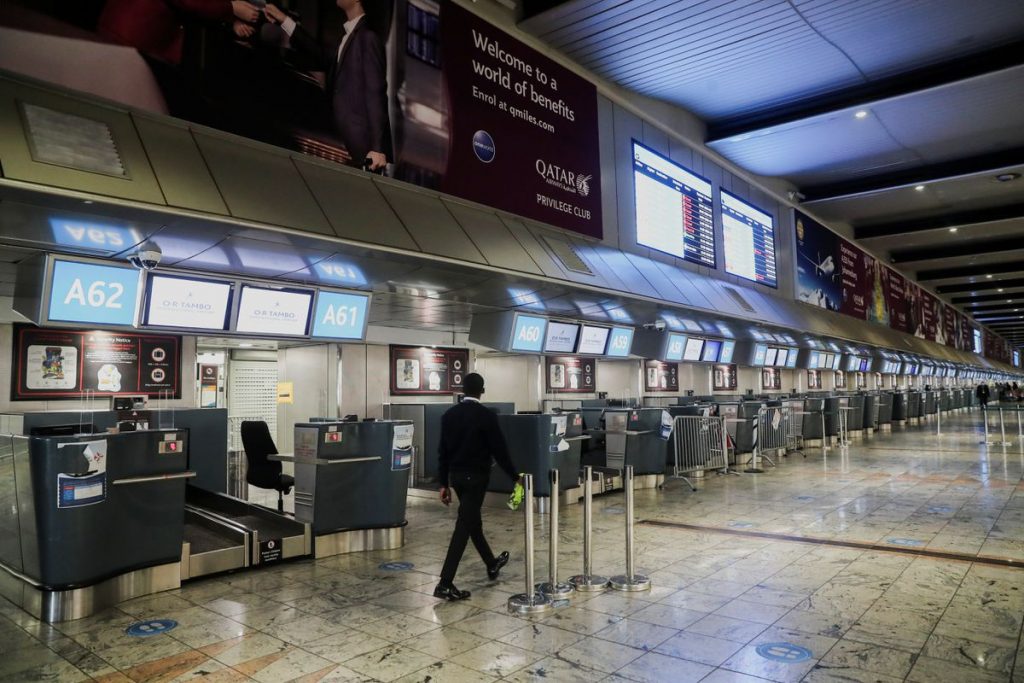
Israel, where a ban on arrivals by foreigners took effect on Monday morning from midnight, has said it will use counter-terrorism phone-tracking technology to combat the new variant.
Australia said it would review plans to re-open borders to skilled migrants and students from Dec. 1, after reporting its first Omicron cases, although Prime Minister Scott Morrison said it was a “bit too early” to reinstate two-week hotel quarantine for foreign travellers.
India has ordered COVID-19 testing at airports from Wednesday for all arrivals from ‘at-risk’ countries.
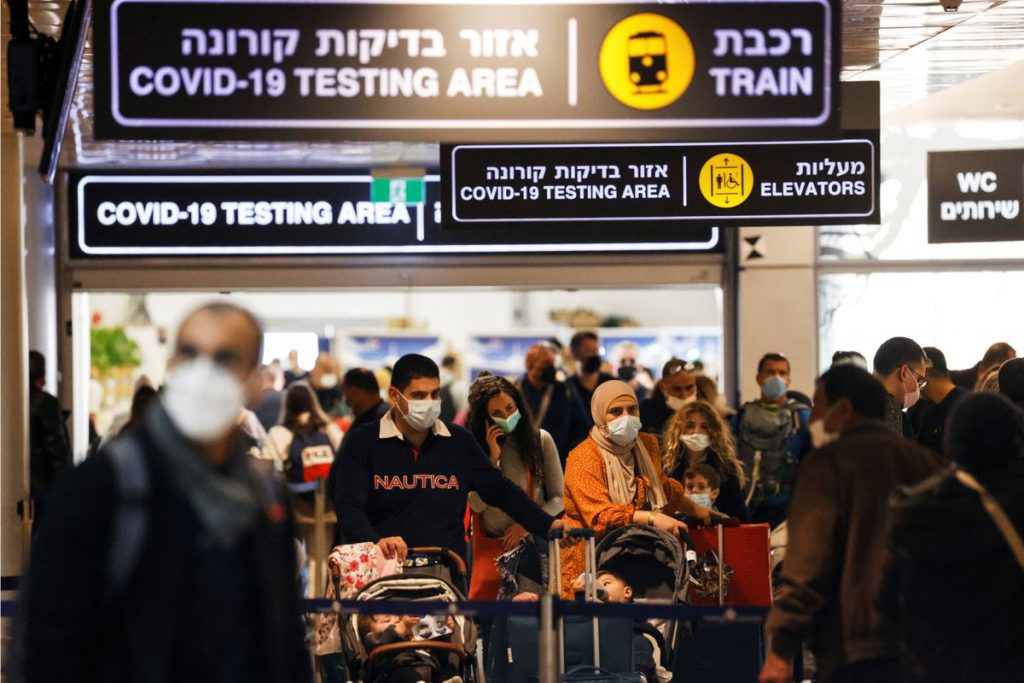
U.S. President Joe Biden will provide fresh details of the variant and the response of the United States on Monday, the White House said.
Travel agents in Asia said some travellers were starting to consider cancelling or delaying trips, threatening the global tourism industry’s already fragile recovery.
South Africa has denounced restrictions on travel from the region as unfair and potentially harmful to the economy, saying it was being punished for its scientific ability to identify variants early.
REUTERS

































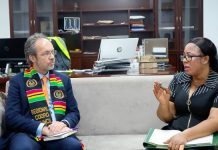
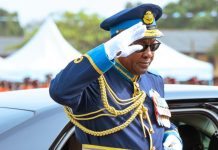
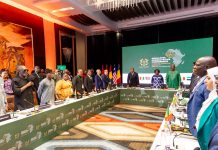




















![[FREE FREE MONEY] Predict and Win a Guaranteed GH¢200 From Us EVERY WEEK](https://wordpress.ghanatalksradio.com/wp-content/uploads/2022/02/Predict-and-Win-Final-09-03-2021-218x150.jpg)
![[Predict & Win – 8th/Oct.] WIN A Guaranteed ¢200 From Us This Week](https://wordpress.ghanatalksradio.com/wp-content/uploads/2021/10/maxresdefault-16-218x150.jpg)
![[Predict & Win – 2nd] WIN A Guaranteed ¢200 From Us This Week](https://wordpress.ghanatalksradio.com/wp-content/uploads/2021/09/maxresdefault-50-218x150.jpg)
![[Predict & Win – 25th] WIN A Guaranteed ¢200 From Us This Week](https://wordpress.ghanatalksradio.com/wp-content/uploads/2021/09/maxresdefault-36-218x150.jpg)
![[Predict & Win – 18th] WIN A Guaranteed ¢200 From Us This Week](https://wordpress.ghanatalksradio.com/wp-content/uploads/2021/09/maxresdefault-23-218x150.jpg)


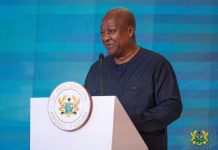
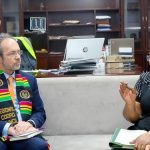







![[National cathedral] See full list of churches that have contributed since 2018](https://wordpress.ghanatalksradio.com/wp-content/uploads/2020/09/Ghana-National-Cathedral-GhanaTalksRadio-100x70.jpg)



